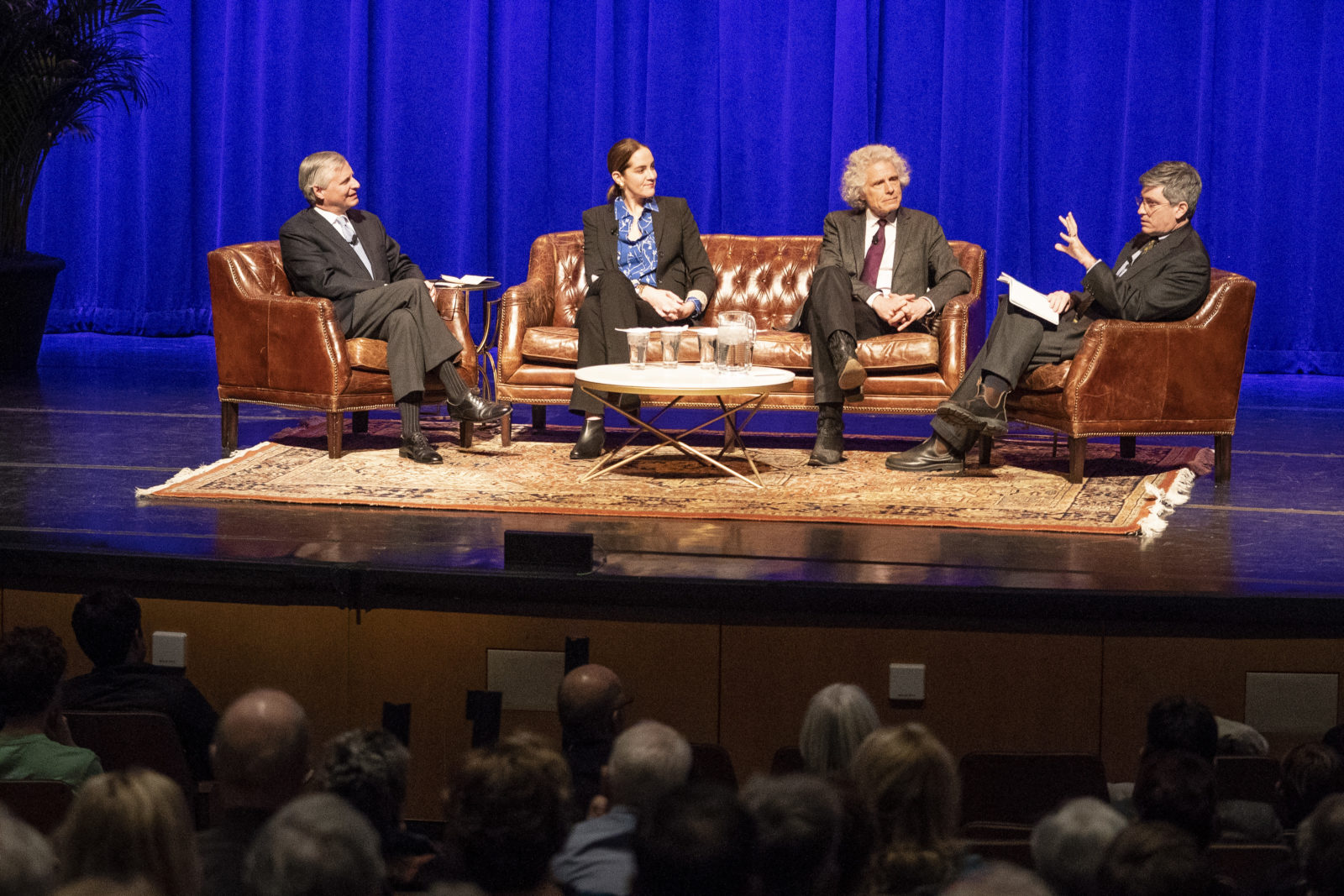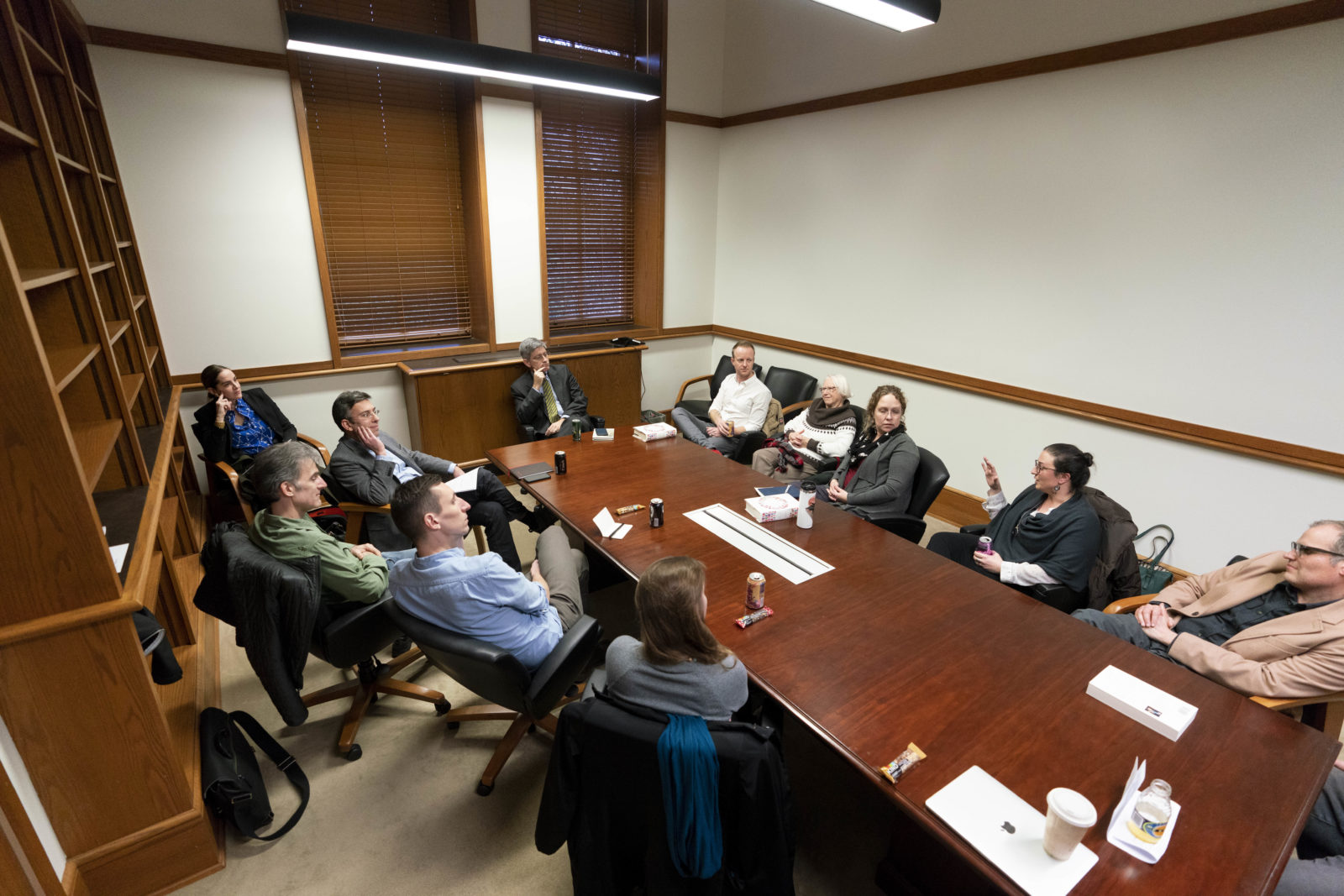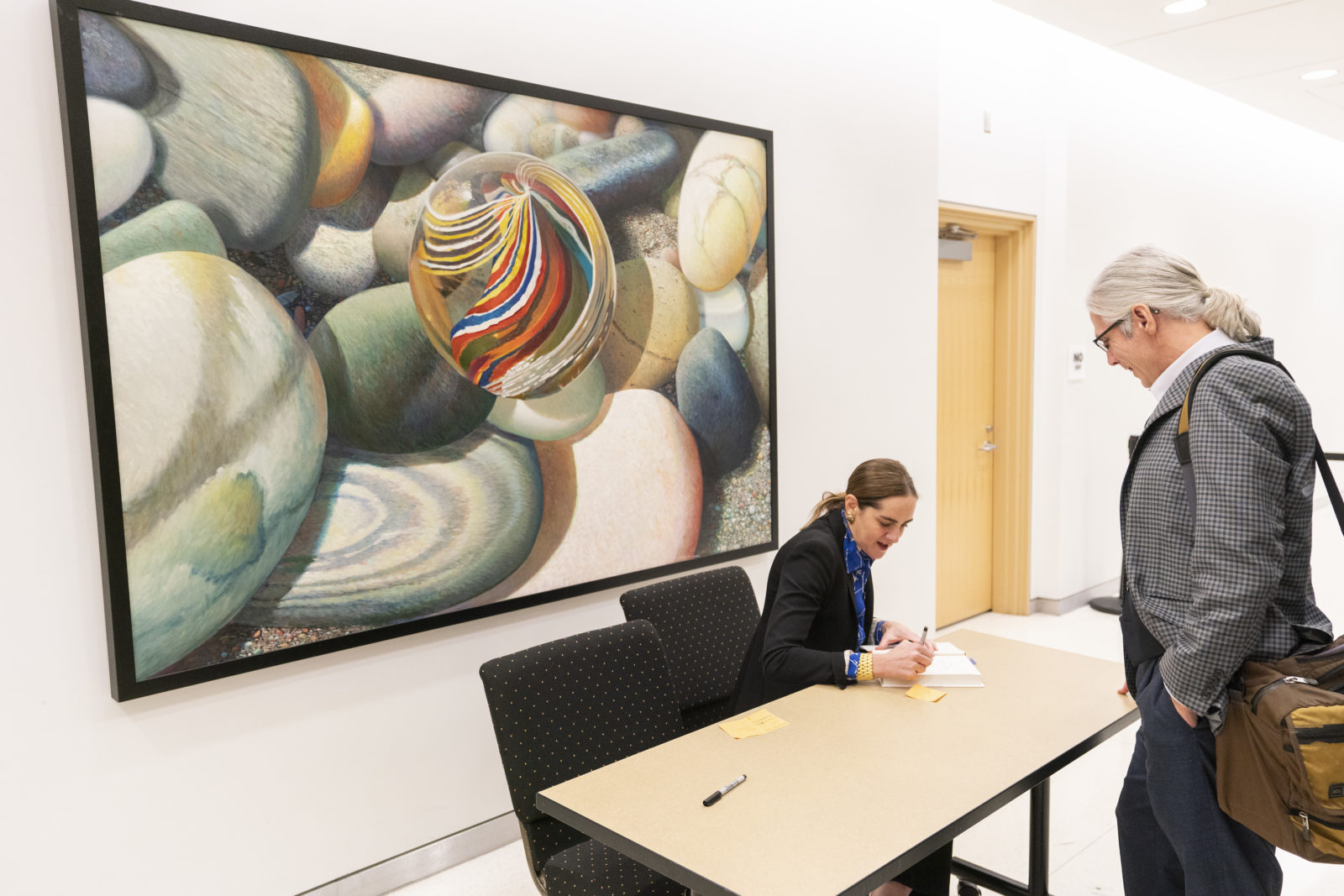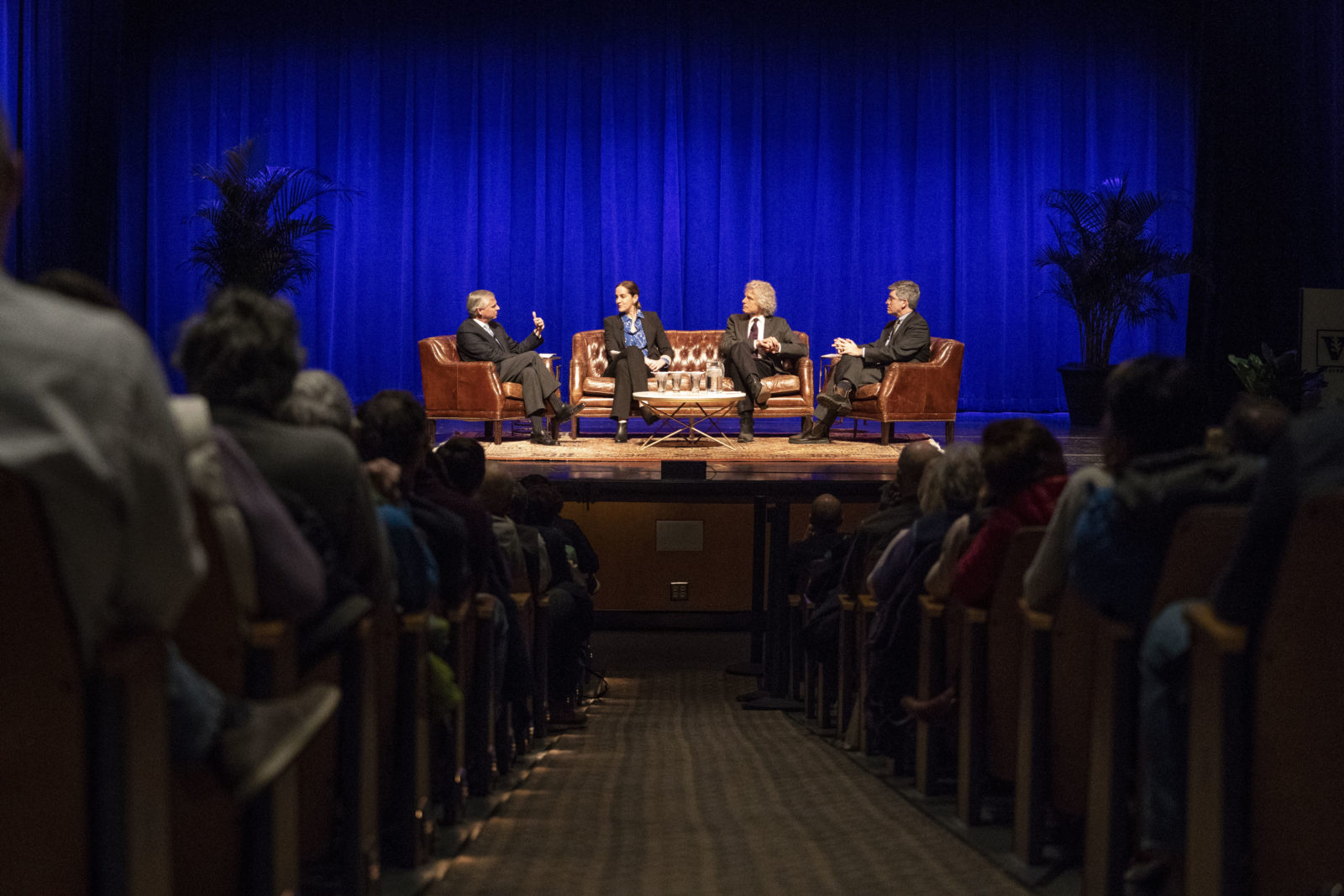
In an ironic twist of human psychology, individuals now have more information at their fingertips than ever before, yet we live in an era when facts themselves are under assault.
That conundrum could have far-reaching implications for imminent global threats, such as climate change, viral pandemics, even nuclear conflict, according to panelists Amanda Little, Steven Pinker and Carl Zimmer, who joined moderator Jon Meacham, distinguished visiting professor and the Carolyn T. and Robert M. Rogers Chair in American Presidency, for the final Chancellor’s Lecture Series of 2019.
Speaking on the topic of “2020 and Beyond: Tackling Global Issues in the Decades to Come” to a crowd at Langford Auditorium on Dec. 3, the panelists were introduced by Tiffiny Tung, associate professor in the Department of Anthropology.
“Human cognition has multiple goals. One of them is not being too far out of touch with reality,” said Pinker, the Johnstone Family Professor of Psychology at Harvard University, and best-selling author of The Better Angels of Our Nature: Why Violence Has Declined. “On the other hand, your opinion on something like climate change makes up a great deal of how you’re accepted in your social group.”
Those beliefs, therefore, become rational because they determine a person’s social standing among peers, Pinker explained. “We’re caught as humans,” he said, adding that social media presents a new set of pressures where a person’s beliefs clearly determine social acceptance or rejection.

In the same vein, Zimmer, a science writer for The New York Times and author of 13 books, says when so much information is readily available, it’s easy for people to simply get overwhelmed by data—especially when dueling opinions come with their own sets of facts. “We do have this problem where…you can’t just put out the facts. They’re not going to do your work for you,” he said. “We glaze over. We get buried in facts.”
Little, a writer-in-residence in the Department of English and author of The Fate of Food: What We’ll Eat in a Bigger, Hotter, Smarter World, said bringing scientific facts to life is key to broadening awareness of issues. As one example, she cited the power of Rachel Carson’s Silent Spring. “This was facts, combined with human experience, and real consequences,” Little said. “The book caught fire and eventually gave way to the founding of major environmental organizations and ultimately forced the establishment of new environmental laws.”
Little noted that among her Vanderbilt students, she has noticed a greater desire to apply the knowledge acquired in the classroom to make a positive impact, particularly in an area like climate change. “I came to Vanderbilt through the English department. But there’s so much interest in the sciences, certainly among the Vanderbilt undergrads I teach,” Little said. “I credit Vanderbilt for really wanting to bring humanities into the sciences.”

Zimmer agreed that tools like storytelling are important to help the public understand what scientific data are telling us. However, he noted that traditional ways of doing that are changing, pointing to several high-profile data visualization projects at The New York Times and elsewhere that present basic information in a way that creates a compelling narrative. Pinker said there is scholarly evidence that people’s minds can be changed through the types of data visualization tactics Zimmer described.
The panelists remained optimistic that for topics like climate change and other threats, human reason will prevail. Alluding to his own work on the subject, Pinker said he believes there will be a continual improvement in the human condition. Yet, that’s not exactly an exciting story in the current media environment. “Bad things can happen very quickly, and they are photogenic,” he said. “Good things consist of either nothing happening, like a country being at peace instead of being at war, or things creep up by a few percentage points a year,” such as people escaping poverty.
Little pointed out that it was innovation that got the world into climate change in the first place, and “we can innovate our way out.”
“It will be a painful process. There will be a huge amount of loss,” Little said. “But climate change will be the biggest job-creation engine of our time. It will define the jobs markets that our students are entering.”
